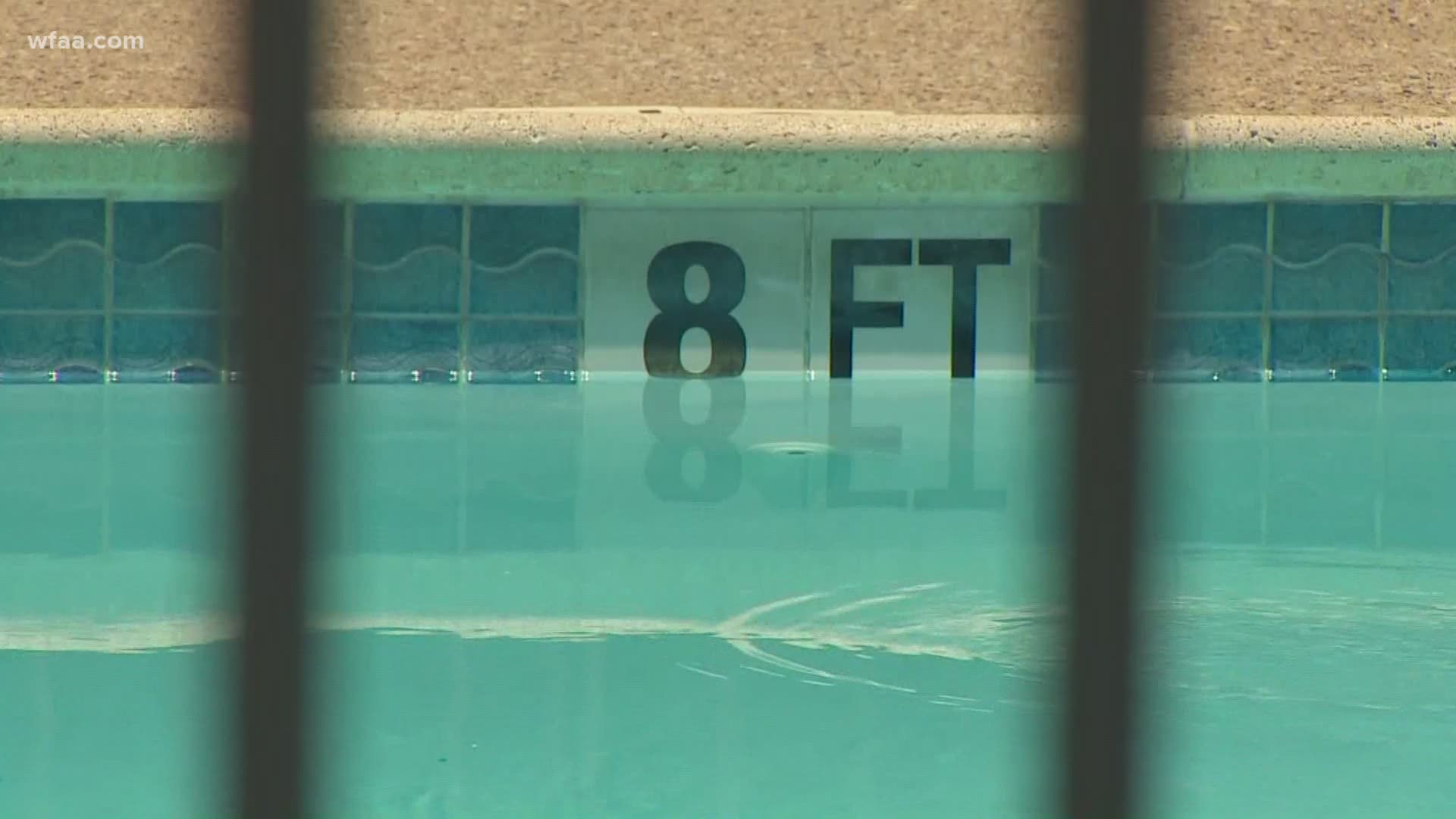Updated on June 15 with additional information from MedStar officials.
MedStar Health released drowning prevention tips Friday after responding to four different incidents in one week, officials say.
On Monday, officials said they had responded to three more drowning patients over the weekend, raising the total number to 11 people between May 1 and June 14. During the same period in 2019, the agency responded to five drownings.
That's a 120% increase in drowning incidents.
“We’re very concerned about the sudden spike in drowning cases,” Matt Zavadksy, a MedStar spokesperson, said on Friday.
On Saturday in Fort Worth, a 28-year-old father died while attempting to save his 6-year-old son. The child survived.
Another incident happened Friday afternoon at a small community pool in the Golden Triangle neighborhood in north Fort Worth. MedStar rushed a man and a child to the hospital in critical condition.
“We’re not sure what the cause for the drowning was for the adult or the child," Zavadsky said. "However, it’s a good reminder to make sure you’re watching those kids when they’re in the water."
The American Academy of Pediatrics warned drownings could be on the rise this summer nationwide. The AAP says parents need to be more attentive as children spend more time at home because of COVID-19, with caregivers who may be distracted by work and other responsibilities.
With a number of public pools and popular attractions still closed because of the global pandemic, more parents are turning to small plastic or inflatable pools for the back yard. The small size can give parents a false sense of security as small children can drown in even a few inches of water, according to the AAP.
The AAP advises parents to remove toys from small pools when not in use and keep an eye on children at all times.
MedStar released tips ahead of a weekend where temperatures in the Dallas-Fort Worth area are expected to climb, with highs well into the 90s each day.
No rain is in the forecast with plenty of sunshine all weekend long.
RELATED: Heat returns in time for the weekend
MedStar Health officials advise that parents and guardians always supervise children, secure at-home pools, and encourage swim lessons.
Below is a full list of drowning prevention tips released by MedStar.
Learn to swim and teach your children to swim
- Enroll in age-appropriate water orientation and learn-to-swim courses, as well as first aid and CPR courses.
- Local YMCAs and other locations such as Emler’s Swimming School offer classes for kids as young as 2 months old.
Actively supervise children whenever around water – even if lifeguards are present.
- Momentary distractions such as phone calls, using the restroom, or someone at the door can provide enough time for a child to access the pool and quietly slip underwater.
- Use a designated adult to be responsible for actively watching the pool or lake area.
- Even use a visual cue for who is the designated watcher such having the water supervisor carry a life jacket as a reminder for both the watcher and those around them to prevent them from becoming distracted.
If you have a pool, secure it with appropriate barriers
- Many children who drown in home pools were out of sight for less than five minutes and in the care of one or both parents at the time. Install a four-sided barrier, such as a fence with self-closing gates completely surrounding the pool.
- If the house forms the fourth side of the barrier, install alarms on doors leading to the pool area to prevent children from wandering into the pool or spa. Also install safety covers and perimeter or in-water alarms as additional layers of protection.
Practice safe habits in and around the water:
- Teach children to always ask permission to go near water.
- Remove floats, balls and other toys from the pool and surrounding area immediately after use.
- The presence of these toys may encourage children to enter the pool area or lean over the pool and potentially fall in.
- Know when to call 911.
Know how to respond to a water emergency:
- Learn CPR. CPR performed by bystanders has been shown to save lives and improve outcomes in drowning victims.
- The more quickly CPR is started, the better the chance of improved outcomes.
- If a child is missing, check the water first
- If someone is in the water and needs help, reach or throw something out to them
- Don’t go in unless you are trained.
- If the drowning is in a lake, find a landmark where the victim went underwater that is not subject to wind or tides.
- Knowing where exactly to start a search will speed the process.
- Have rescue and first aid equipment available at the pool.
- Such as reaching or throwing equipment, a cell phone, life jackets, and a first aid kit

